Among my top recommendations for Twitter follows is Bitter Script Reader, an anonymous Writers Assistant in Hollywood who offers extremely sharp takes on TV, movies, and even comics. By replying to other users and quote tweeting he encourages healthy, intelligent discourse on a social platform in sore need of it. I was very pleased when Bitter Script Reader agreed to participate in an interview where we covered his Twitter identity, building a career in Hollywood, and the unconventional spec script that has him in contention for jobs on a TV Writing Staff.
Can you describe how your Bitter Script Reader presence was born?
I think the really early genesis for what became the blog was my ever-growing frustration with seeing the same bush league mistakes in scripts. I’d been reading scripts for over five years at that point and I needed an outlet to vent about scripts with no sense of structure, scripts with the same kinds of two-dimensional characters, scripts that over-sexualized their female characters in gross and obnoxious ways. For at least a year or two, I’d threatened to write a book about being a reader. Around the same time, I became aware that more professional writers like Jane Espenson were blogging and that aspiring writers were starting to build a screenwriting community. I started to think that this might be a good way to publish the stories I said would become a book and also do some networking that could get me an agent.
What made Bitter Script Reader an enticing role to play?
I don’t know that I ever thought of it as a “role.” Pretty early on I realized that Bitter Script Reader’s voice worked best when it was my voice and not some exaggerated or more aggressive version of myself. When you’re blogging almost daily, it becomes both difficult and limiting to do it in a consciously different persona. Eventually, that heightened personality is going to merge with yours. Having said that, the early posts I enjoyed the most were the ones where I just cut loose about male writers who needed to take a cold shower before writing their fantasy girlfriends, or where I sarcastically took down people who thought they were hiding how boring the first half of the script was by starting with a flash-forward to the climax.
When you’re writing professional coverage, you’re rarely afforded the opportunity to just bluntly say, “This sucks! No one would ever buy into this premise and even if they did, they’d never find anyone in this script to be a recognizable human!” It was a cathartic release of five years of frustration.
A lot of people dream of writing for TV. What made you take the next step and head out to LA to pursue it?
The honest answer is that I didn’t have any other options. I’d graduated and spent six months at home realizing I was never going to find anything there that would remotely aid me in building a career in film and TV. Then I found out two girls who I was friends with in college were moving to LA and so moving all this way got a lot less scary since there were people I knew out here. If you’re going to do something bold like that, the time to do it is in your twenties when you don’t have any responsibilities tying you down and you’re at a point in your life where you can make a clean start.
Being a Writer’s Assistant seems like the most effective path to becoming a TV writer. How similar are the responsibilities of each job?
The similarities between being a writer and a writers’ assistant? There’s a lot of overlap. You need to have a strong sense of story. That really helps you as an assistant when you’re taking the room notes and you have to keep them organized into some kind of coherent document. On any given day, the room might jump around from subject to subject, character to character and plot to plot. You can’t keep the notes in strictly chronological order because there’d be a lot of back and forth. But if you’re really good with story, you can tailor the room notes to be a valuable tool for all the writers in there by bringing extra coherence to the notes.
Basically, the better you understand how the notes need to be received on the writers’ end, the more effective you’ll be as an assistant. And of course, there’s also the fact that you’re able to participate in the story breaks and discussions, just as any of the writers do. The job of the assistant is almost like being a junior writer who also has to keep the story bible and be a resource for the room when they need it. Sometimes you might be called upon to pitch in on an outline or even do a first-draft scene as practice, but that varies from show to show. It’s very much an apprentice kind of position.
You’ve discussed sending out pitch packages to land a spot on a writing staff. How much strategic thinking goes into what to pitch, who to send it to, and so on?
I want to offer a slight correction here. “Pitch package” is a term mostly used to refer to what you submit to late-night shows and sketch shows. In those, you write up a couple of sketches, a few desk bits, maybe some monologue jokes. In TV, it’s more about your portfolio. Some showrunners are only interested in reading spec episodes of existing shows, others prefer to read original pilots. There are pretty solid arguments on both sides. A Staff Writer’s responsibilities are going to be more about mimicking the showrunner’s voice, so a spec episode would see how effective they are at emulating another show. (You never submit a spec episode of the show you’re actually up for – too much risk to the show if they end up working on similar ideas. They don’t want you thinking they stole your idea.) But then again, there’s SO MUCH TV out there now that there’s a real risk the showrunner would be completely unfamiliar with the show you’ve covered.
So for these reasons, it’s best to have at least one of each. Ideally, the scripts compliment each other. In my case, I wrote a pilot that was a dark teen drama and did a spec episode of 13 REASONS WHY. The two submissions compliment each other in a way that helps brand you. That’s not to say you couldn’t write a HOMELAND-like pilot and a spec episode of THE MAGICIANS, but those samples don’t make as strong a case for you being “The [Fill in the Blank] Guy or Girl.” Are you a grounded drama writer or a genre writer? Worry less about showing a wide range and focus more on showcasing what you’re BEST at.
Even as spec episodes had fallen out of favor over the last decade, the practice was kept alive because almost every workshop and fellowship require you to submit a spec episode of an existing show. Some, like the ABC/Disney Writing Program, also allow you to submit original pilots. It’s usually advised not to submit the same scripts year after year, and the spec episodes are required to be current with the show’s present timeline. Some of the programs might require you to choose only from an approved list of shows.
So my process always started with making a list of the approved shows that I watched, and gradually whittling it down by which shows I was excited to write, and which shows I could come up with a good story for. It’s usually advised to not spec a first season show – there’s too great a risk of it being canceled. You also don’t want to pick a show that’s been around a while either. There was a point in THE OFFICE’s second or third season where EVERYONE was writing specs for that show. By the time we got to seasons five or six, it would have taken an extraordinary OFFICE spec to stand out from the pack. Then MODERN FAMILY came out and enjoyed a few seasons as the spec darling. You want to pick a show that you love and one that’s popular, but you should try not to do the obvious ones that everyone else is doing.
As prep for the interview, I read your 13 Reasons Why spec. Really, really liked it. Feels very true to the characters and it really moved me. It’s going to be a little hard to see the show go in a different direction! But I know conventional wisdom is to write specs within the existing framework of a series. Are you concerned about pitching a spec that gives the show a new direction with the alternate universe approach and uses a character (Hannah) we know they’re not bringing back?
I wrote that originally as an exercise in showing how a spec episode is developed. The problem I always had in doing something like that before on the blog was that I wanted to be able to use a spec episode as “me” and putting something out there as “Bitter’s” would complicate that. When I got the hook for that idea – and it really was as basic as me making a stupid twitter joke/suggestion that my brain refused to let go of – I realized that since this idea was useless as a “proper” spec episode, it was the perfect thing to use as a teaching tool of How to Write a Spec Episode. Plus it also meant no one else could steal the script and put their name on it.
At the time I wrote it, that literally was all I intended it to be – just a fun exercise for the blog. Now, once I got to thinking through the process on that, I ended up doing a broad break of the entire hypothetical season, but that was just me getting carried away with the idea.
But to tell this next part of the story as briefly as possible… I recently got a sit-down with a writer and showrunner I greatly admire and in the course of talking about what I write, I brought up this spec. They were VERY intrigued by it, to the point where when the meeting ended with them asking me to send two of my best scripts, I realized I HAD to send this spec – they were just too interested in it. This writer got back to me with the note that they thought it was “terrific” and as I would later learn, this was the script that they passed to other showrunners and staffing execs to make the case for “You’ve gotta put this guy on staff!”
I’m still in contention on a couple of shows and a BIG reason for that is this spec. And it’s fucking bizarre to me that something I dashed off in a couple of weeks as a lark is the thing that people seem really impressed with in meetings, but that’s how it goes.
I have another 13RW spec ep that plays by the rules and I think it’s pretty solid stuff. I feel like it would make a good case for me as a writer. but this? THIS ONE sticks with people for some reason. It probably would be suicide (crap… bad choice of words) for me to use this as a submission to a fellowship program, so yeah, I wouldn’t recommend doing this for that. But if you can bypass that and go straight to showrunners, there are probably worse ways to leave an impression than going nuts like this.
And thank you so much for saying that! It’s been very flattering that almost everyone who’s read that script has said to me something like, “This is what they should do next season” or “This is what I WISH they were doing next season.” I like to think it’s because they can see the season-long potential in how it was set-up rather than it just being the wish fulfillment of “Clay gets Hannah back.” If you read my posts on how I wrote it, you saw the longer version of how I came to this, but I really think the moment that makes people see an entire season in it is the point where Hannah says she’s no longer sure of what she feels or if she even ever felt it. AND that whole mindset didn’t occur to me until I was actually writing that scene. That was the moment where I really felt like I’d keyed into both characters and found something that would drive a season of stories rather than just one.
I really think that’s part of the magic trick of writing any spec episode. Get the show right, but find some way to really stimulate the reader’s imagination off of “What if this WAS a real ep? What would that mean?” A friend of mine who’s been a WBTV Workshop finalist a few times gave me the advice that “you have to break the show a little in order to stand out. But you’re also not SUPPOSED to break the show so you have to be very clever about how you do it.”
What kinds of TV series did you choose to target with your pitch package?
For me, it always started with “What do I have a story for?” The first time I submitted to the Warner Bros Writers’ Workshop, it was with a spec DON’T TRUST THE B—- IN APARTMENT 23. For years I’d been focusing on features and really had trouble coming up with TV ideas, but I really wanted to enter the program, so I picked a show I knew I’d have fun with. At the time, the series was one of my favorite shows, with a razor-sharp and distinctive comedic voice, and so I figured it might be more memorable than another 30 ROCK or PARKS & RECREATION. I went into a fair amount of depth about that particular script here, if your readers are interested.
My angle always seems to come down to: what am I really passionate about? And what shows do I think I can write? That second question is an important one. I love BETTER CALL SAUL, but I’m just not wired to be a writer on that kind of show. I’ve tried a couple of times to come up with a spec episode and I just come up blank. It’s an extraordinarily well-done show with great characters, but I just can’t find my way inside of it.
Are they the kinds of series that you most want to write for, or did other factors play into your decision?
Usually, yes. I did 13 REASONS WHY because I really connected with that show and the lead characters. I found it really easy to write for them in the confines of their world and use that story to showcase some of my own writing strengths. I don’t know that I even could come up with a spec episode of a show I wasn’t passionate about. It would probably be easy to look down on a three-camera sitcom like BIG BANG THEORY and just say, “Oh, all I need to do is come up with a story about the guys going to a comic book signing,” What you don’t consider is that unless you LOVE that show, anything you write of it will probably come off shallow and maybe even condescending.
Usually, there’s going to be a decent overlap between the kinds of shows you like to write and the kinds of shows you like to watch.
Through your Twitter presence as Bitter Script Reader, you’ve developed a great social media presence that facilitates a lot of great discussions and healthy discourse. Has that resulted in positive impacts on your career in TV?
Oh yes. I can’t overstate the importance of that. Every job I’ve gotten in TV, and really, probably just about every meeting I’ve gotten in TV is one that I tweeted myself into. It’s the greatest platform for networking, and I want to talk a little about that because there are a lot of writers who never got anywhere because they react to networking the way a vampire does to sunlight. I’ve heard every excuse, “It seems so phony. It doesn’t have anything to do with your writing. I’m not good at meeting people. It only works if you already know someone.” Bullshit, I say.
The people with this attitude are those who think they should have direct access to the person doing the hiring and that it should be immediate. Maybe they went to one networking meet-up, saw it was full of assistants and young writers and decided “There’s no point.” That’s the wrong attitude. In this kind of networking, the mindset shouldn’t be that you’ll show up and meet someone ready to hire you. It’s that you get to know people who will be in a position to know, “Hey, so-and-so’s looking for an assistant. I can get your resume on the top of that pile.” Or “Hey, one of the shows I’m on needs a new Writers PA. I’ll give you a strong recommendation.” These are the things that get your foot in the door. Don’t be mercenary about it – you shouldn’t be sizing up people solely on how high they can get you on the ladder. It should be about getting to know people in the business who you click with. That makes it a real relationship and over the course of that relationship, you’ll both probably be in positions to help each other.
Twitter networking isn’t too different from that except that if you play it right, you CAN land on the radar of those people who do the hiring. When I started on Twitter, a lot of what I was doing was promoting my blog posts and tweeting out links to interesting stories with my thoughts on them. I was generating content that was of interest to the kind of people I wanted to work for. A big break was that about six months into the blog, Scott Myers of Go Into The Story did an interview with me and featured my blog. That put me on the map with a lot of his audience and the attention they brought helped boost my profile when I joined twitter. Before long, writers I knew were following me and RTing me, which exposed me to their peers and audience.
When you reach that level, it really becomes about “Am I contributing to the conversation?” I don’t strictly tweet about writing, or TV and movies, but I do enough of it that people know if they follow me, they’ll get those kinds of observations. In a fairly organic way, I found myself in conversations with writers and creators whose work I’d admired for a while. Sometimes that turned into “Hey, want to get coffee?” In other cases, I wouldn’t meet people until we were both at the same comic convention and I got to do one of my favorite things – introduce myself to someone and say, “We follow each other on twitter” and then see their face light up when I said, “I’m the Bitter Script Reader.”
As flattering as that was, it also let me know I was doing something right. People were very happy to meet me, greeting me like an old friend in many cases. That let me know I was presenting myself in a positive way even though I was often critical of some TV shows and movies.
Let me tell you something about my first job in TV – it took over two years from the time I had coffee with that showrunner to the point where they had something they could hire me on. The second showrunner to hire me was someone who I’d engaged with on Twitter for probably at least two years before they said, “Hey, are you interested in…” You’re probably NOT going to get a job from someone you just Twitter-met, so don’t approach every interaction with the thought that it ends with you getting a job.
This works both ways too. There are plenty of people I’ve gotten to know on twitter who are in earlier stages of their career than I am. Some of them are even still in school. There’s not much I can do for them career-wise, but I ended up following and befriending these strangers because they were good conversations. Sometimes it was about them engaging me about something written, but often I might be tweeting about a show or a comic book that I like and that turned into an interesting enough conversation that I thought, “This is someone I want to follow.” In at least two cases, a relationship grew out of someone recognizing an obscure Simpsons reference I made and that provoked an interesting back and forth.
So if you’re tweeting at a showrunner or a feature writer you really love, saying “Oh man, your latest thing was awesome!” is a nice gesture, but it doesn’t really provoke anything from them but “Thanks!” But if they’re talking about something passionate to them and you can meet that passion, you might make for a more memorable interaction. Don’t come on too strong – I can tell when someone’s trying too hard to get my attention or they’re really aggressive about getting a follow. Sometimes that can be off-putting. Be normal. Be the kind of person someone wants to talk to.
Especially in TV writing, an important factor in getting hired is “Can I stand being in a room with this person for 10 hours a day?” You can tell a lot about someone’s personality from their twitter. Obviously,y your writing plays a huge role too, but the personality factor can always tip the scales.
Everything I have in this business came largely from the fact I sat down and started my blog, then was smart enough about how I presented myself on Twitter. You can say my pre-blog jobs gave me the insight and the content that fueled my writing, but the thing that kicked open every door for me was the material I put out in public.
Be bold. Have a point of view. That’s what will make you stand out from the crowd.
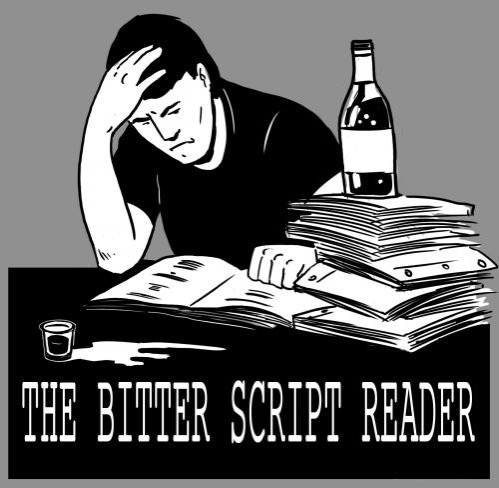
Go follow Bitter Script Reader through his blog and especially on Twitter @BittrScrptReadr
Matt Chats is an interview series featuring discussions with a creator or player in comics, diving deep into industry, process, and creative topics. Find its author, Matt O’Keefe, on Twitter and Tumblr. Email him with questions, comments, complaints, or whatever else is on your mind at [email protected].


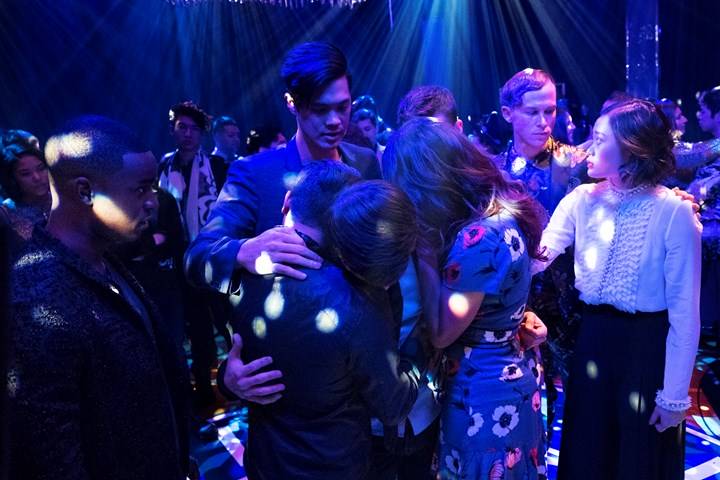
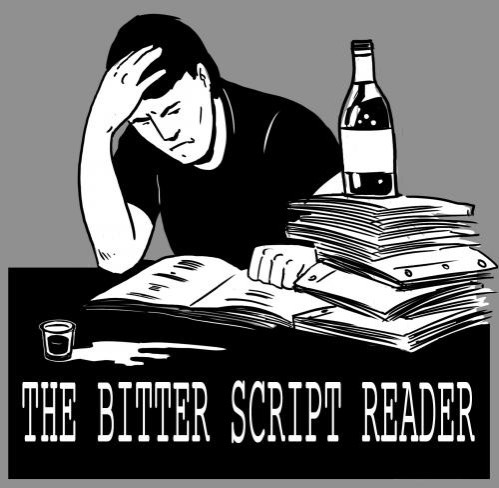

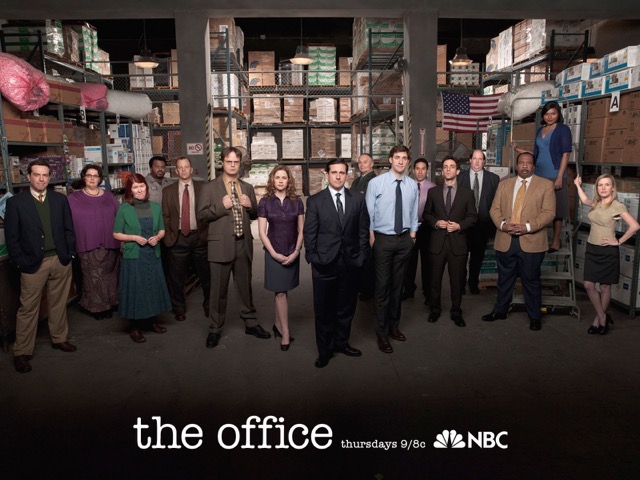
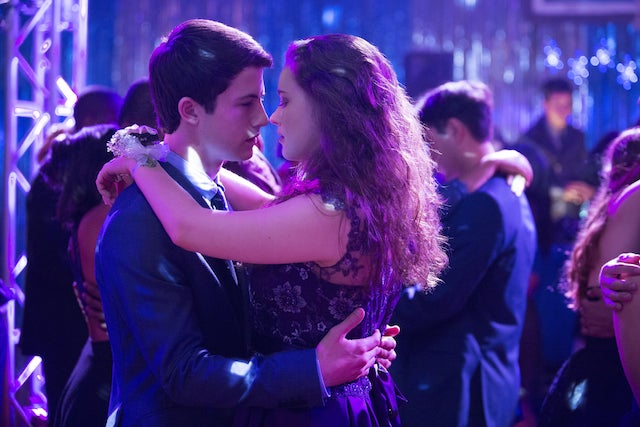
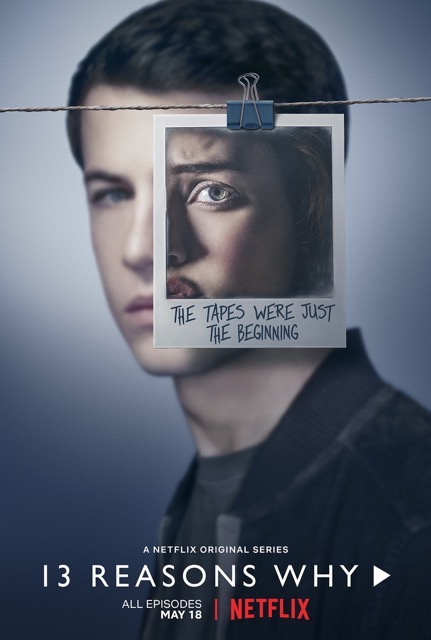
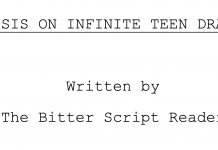




There’s very little nuanced discussion on Twitter. It’s a place where people vent raw emotions, usually anger, outrage and hatred. This is done by liberals and conservatives, and by smart people and dumb people.
This is why people often have to take a break from Twitter. The Perpetual Outrage Machine can become depressing.
Comments are closed.